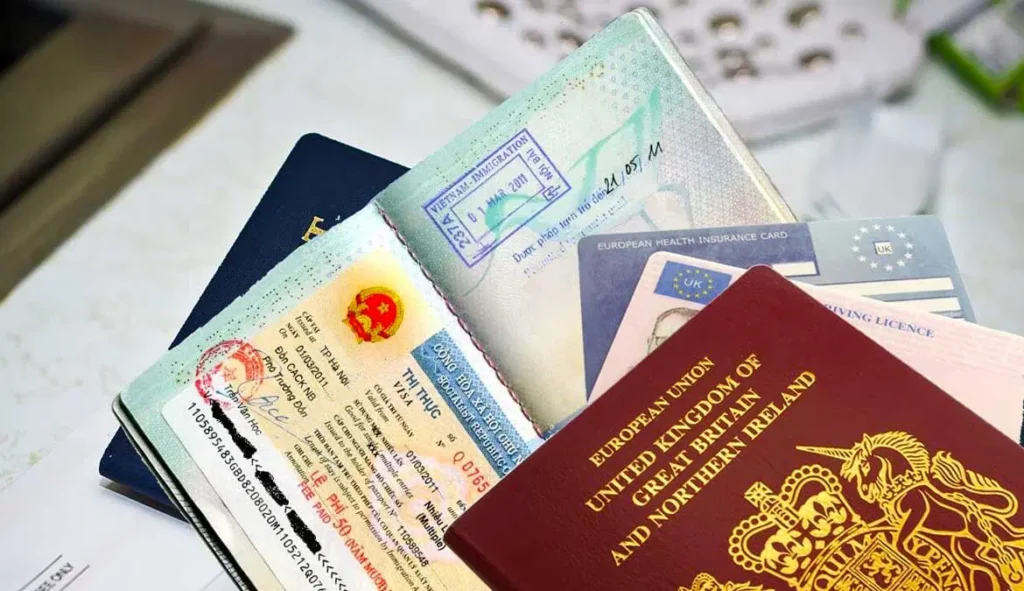Cambodia Visa Application Process for Uruguayan Passport Holders

For Uruguayan citizens planning a visit to Cambodia, understanding the visa requirements and application processes is essential for a smooth travel experience. Whether you’re heading to explore the majestic temples of Angkor Wat, enjoy the vibrant culture of Phnom Penh, or relax on the beautiful beaches, having the right visa is crucial. This guide provides detailed information on visa options, application processes, and tips for Uruguayan travelers seeking to visit Cambodia.
Visa Options for Uruguayan Citizens
Uruguayan citizens have several visa options when traveling to Cambodia, each designed to cater to different purposes and lengths of stay. The primary visa types available are the Tourist Visa and the Business Visa. CAMBODIA VISA FOR URUGUAYAN CITIZENS Understanding the differences between these visas can help you choose the one that best fits your travel needs.
Tourist Visa (T-class):
The Tourist Visa is intended for travelers visiting Cambodia for leisure and tourism purposes. For Uruguayan citizens, this visa allows an initial stay of up to 30 days. It is ideal for those planning to visit Cambodia’s cultural landmarks, such as the Angkor Wat temple complex, or to experience the local culture and attractions in cities like Phnom Penh and Siem Reap. This visa can be extended once for an additional 30 days, allowing for a maximum stay of 60 days. Extensions need to be arranged before the initial visa expires, and they can be done through local immigration offices or licensed travel agencies within Cambodia.
Business Visa (E-class):
The Business Visa is suitable for Uruguayan citizens visiting Cambodia for work-related activities. It also provides an initial stay of 30 days but offers more flexibility compared to the Tourist Visa. Business Visas can be extended for 1, 3, 6, or 12 months, and multiple entry options are available. This makes it ideal for Uruguayan entrepreneurs, professionals, or anyone involved in business dealings in Cambodia. Extensions for the Business Visa require proof of employment or business activities in Cambodia.
Applying for a Cambodia E-Visa
The Cambodia e-visa offers a convenient and efficient way for Uruguayan citizens to apply for a tourist visa without having to visit a Cambodian embassy or consulate. The e-visa application process can be completed online, simplifying the visa acquisition process.
E-Visa Application Process:
To apply for an e-visa, Uruguayan travelers need to visit the official Cambodia e-visa portal. The online application requires filling out a form with personal details, uploading a recent passport-sized photograph, and paying the visa fee using a credit or debit card. The processing time for the e-visa is typically 3 to 5 business days. Once approved, the e-visa will be sent to the applicant’s email. Travelers must print the e-visa and present it upon arrival in Cambodia.
Entry Points for E-Visa Holders:
The e-visa is accepted at several major entry points in Cambodia, including Phnom Penh International Airport, Siem Reap International Airport, and specific land border crossings. It is important for Uruguayan travelers to ensure they enter through these authorized points, as not all Cambodian borders accept the e-visa.
Visa on Arrival for Uruguayan Citizens
For Uruguayan travelers who prefer not to apply for a visa before departure, a Visa on Arrival (VoA) is available at major Cambodian entry points. This option can be particularly useful for those who need to make travel decisions at the last minute.
Visa on Arrival Process:
To obtain a Visa on Arrival, Uruguayan citizens must present a valid passport, a passport-sized photo, and the visa fee (usually around $30 USD) at their entry point. This visa allows for a 30-day stay and can be extended once for an additional 30 days. The process is generally straightforward, but travelers should be prepared for potential queues, especially during busy travel seasons. While the Visa on Arrival is a convenient option, travelers may face longer waiting times at airports or border crossings. To avoid delays, Uruguayan citizens may prefer applying for an e-visa in advance.
Visa Requirements and Extensions
Uruguayan citizens must meet specific requirements to obtain a Cambodian visa, whether applying online, through an embassy, or upon arrival. Valid Passport: The passport must be valid for at least six months beyond the date of entry into Cambodia and have at least one blank page. Application Form: A completed visa application form is necessary for both e-visa and Visa on Arrival applications. Passport-Sized Photo: A recent passport-sized photograph is required for both application types. CAMBODIA BUSINESS VISA Visa Fee: The fee for the e-visa is typically around $36 USD, while the Visa on Arrival costs approximately $30 USD. Extensions:
For those wishing to extend their stay in Cambodia, Tourist Visas can be extended for an additional 30 days. Business Visas offer more flexibility, with extensions available for 1, 3, 6, or 12 months. Extensions should be applied for before the initial visa expires to avoid overstaying fines. For extensions, travelers can visit local immigration offices or use services provided by authorized travel agencies.
Essential Travel Tips for Uruguayan Citizens
To ensure a smooth and enjoyable trip to Cambodia, Uruguayan travelers should consider the following tips: Health Precautions: Before traveling, ensure that you are up-to-date with recommended vaccinations. While Cambodia does not have mandatory vaccination requirements, it is advisable to be vaccinated against Hepatitis A and B, Typhoid, and consider malaria prevention if visiting rural areas. Currency and Payments: Cambodia’s official currency is the Cambodian Riel (KHR), but US dollars are widely accepted. Carrying small denominations of US dollars is useful as they are often preferred for transactions in local markets. Cultural Respect: When visiting temples and sacred sites, dress modestly by covering shoulders and knees. This shows respect for Cambodia’s cultural and religious traditions.






